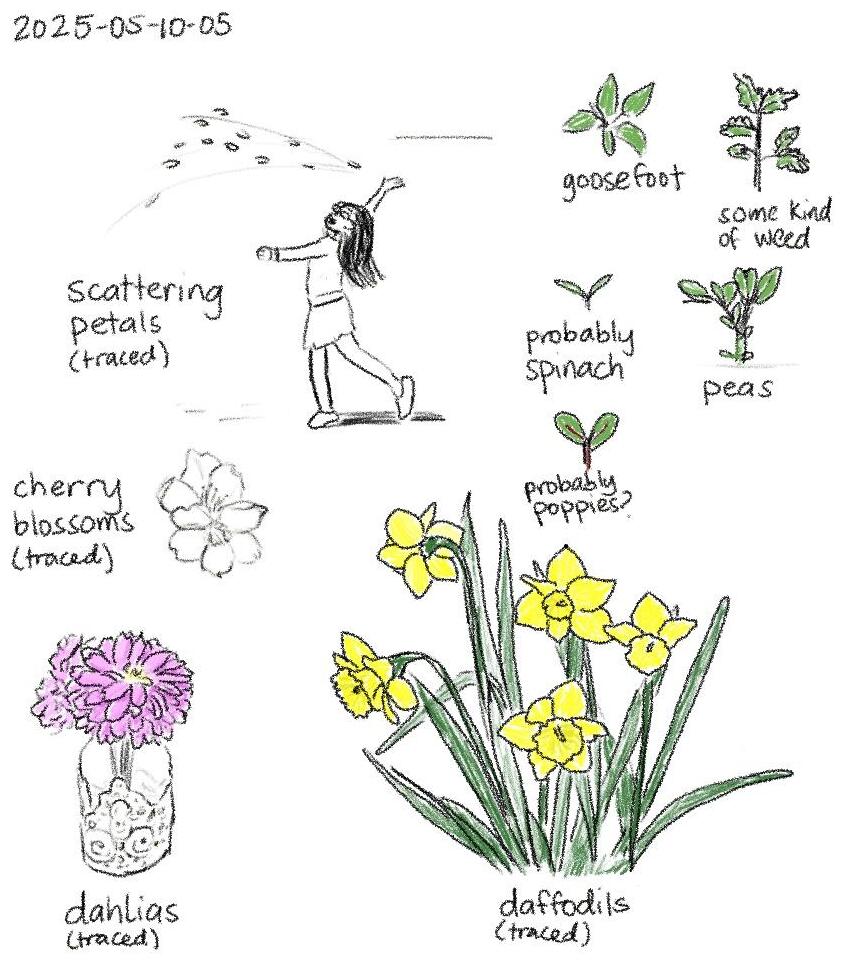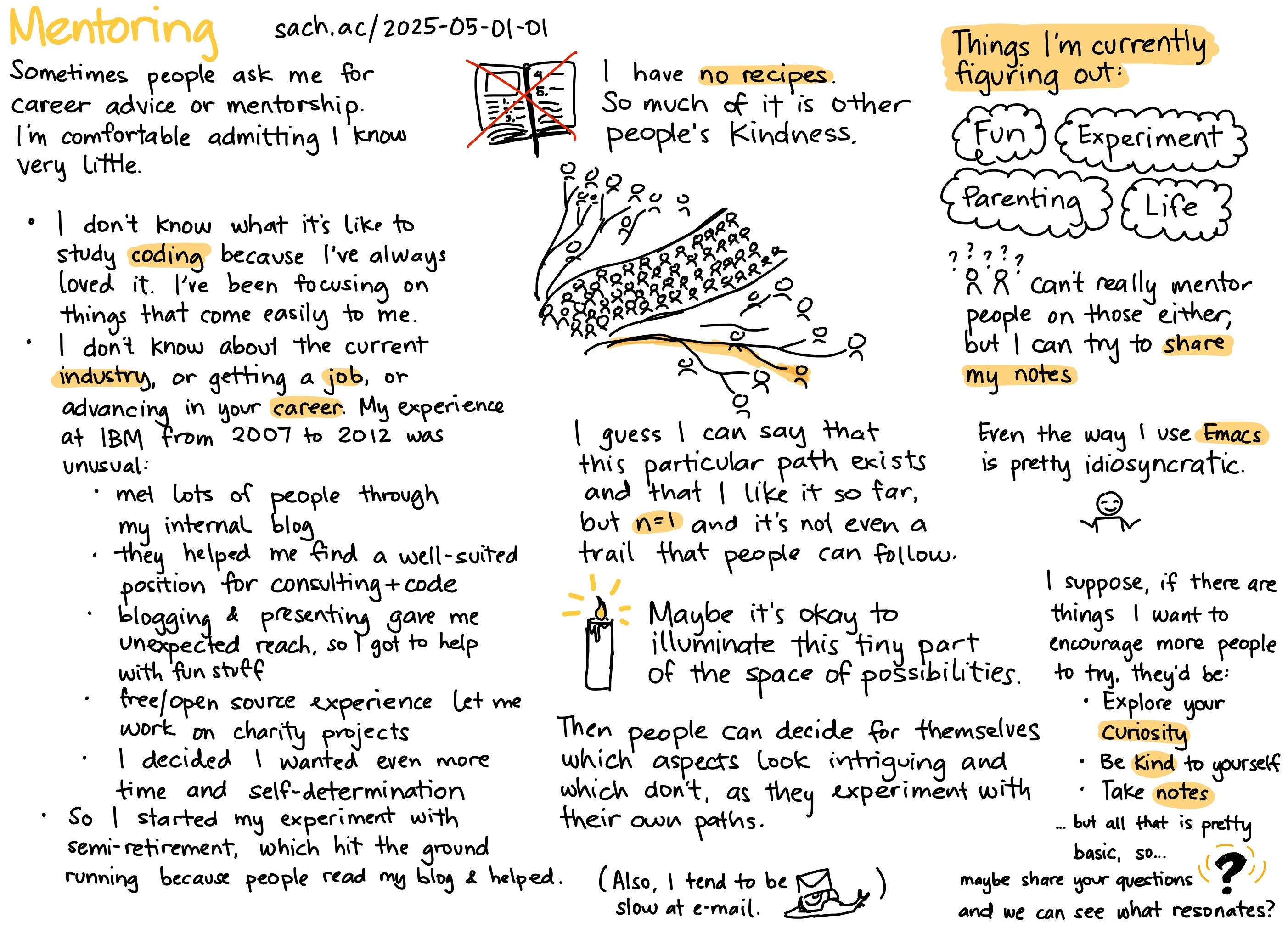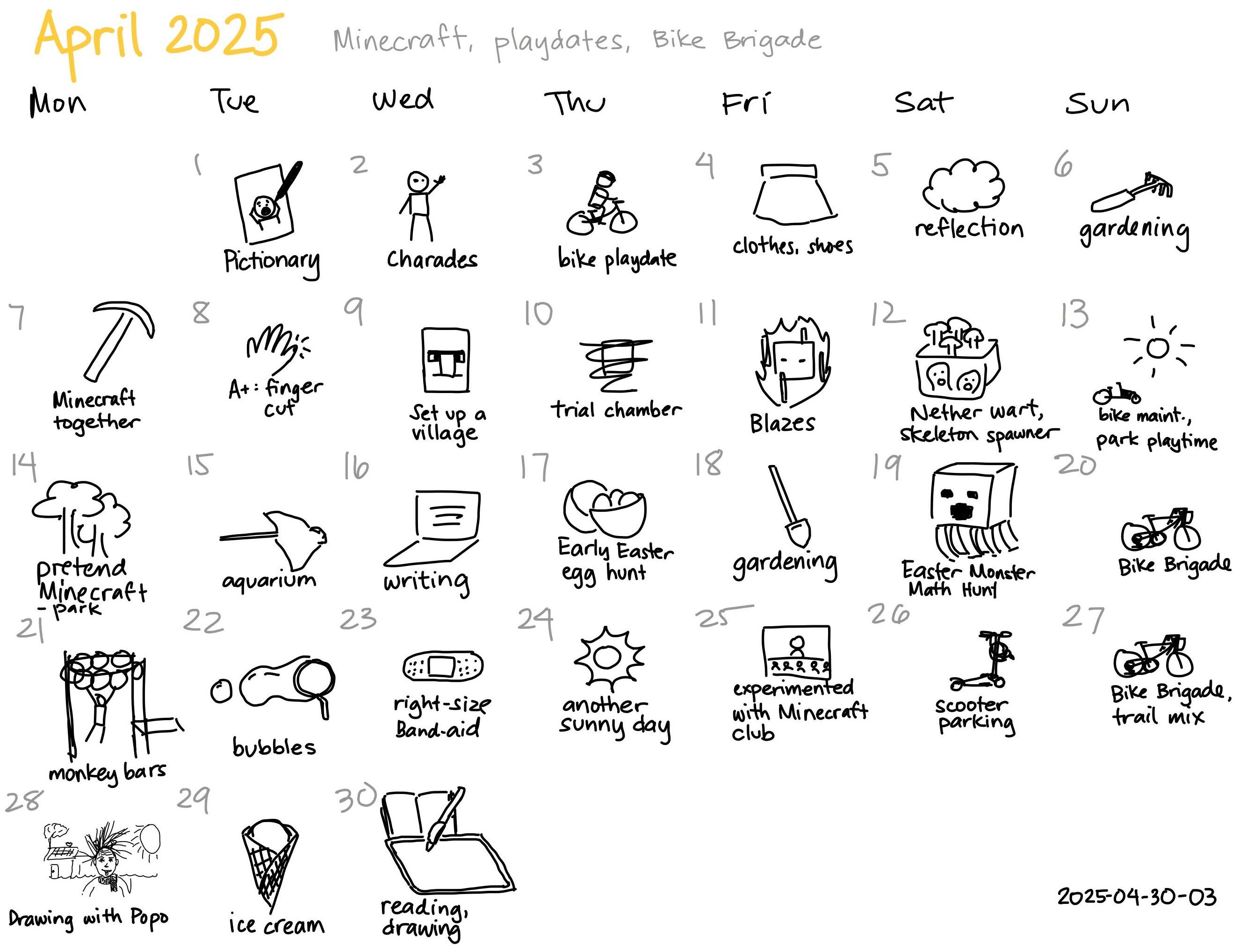2025-05-19 Emacs news
| emacs, emacs-news- Emacs 30:
- Upcoming events (iCal file, Org):
- M-x Research: TBA https://m-x-research.github.io/ Wed May 21 0800 America/Vancouver - 1000 America/Chicago - 1100 America/Toronto - 1500 Etc/GMT - 1700 Europe/Berlin - 2030 Asia/Kolkata - 2300 Asia/Singapore
- Emacs APAC: Emacs APAC meetup (virtual) https://emacs-apac.gitlab.io/announcements/ Sat May 24 0130 America/Vancouver - 0330 America/Chicago - 0430 America/Toronto - 0830 Etc/GMT - 1030 Europe/Berlin - 1400 Asia/Kolkata - 1630 Asia/Singapore
- Emacs Berlin (hybrid, in English) https://emacs-berlin.org/ Wed May 28 0930 America/Vancouver - 1130 America/Chicago - 1230 America/Toronto - 1630 Etc/GMT - 1830 Europe/Berlin - 2200 Asia/Kolkata – Thu May 29 0030 Asia/Singapore
- Emacs configuration:
- Marie K. Ekeberg: Emacs Quick Tip: Disable key bindings with global-unset-key (Irreal)
- ELPAs list: Cross archive package listing for looking up packages that may or may not be on MELPA (Reddit)
- Emacs Repeat Commands (09:45)
- Solving Emacs Garbage Collection Stutters (Reddit, Irreal)
- Emacs' Transient.el — a bunch of practical examples. - YouTube (57:14, HN)
- kickingvegas/casual 2.4.3: supports latest Transient breaking change (transient-define-group), update both; occur in re-builder, electric quotes (@kickingvegas@sfba.social)
- achyudh/evil-keypad: Modal command dispatch that speaks native Emacs keybindings (Reddit)
- Rapport Emacs - literate config
- Supreme Sexp System - SSS 2.3.23 (@sss_project@mastodon.social)
- Emacs Lisp:
- Speed up Emacs with features, requires, and autoloads (15:45)
- Marcin Borkowski: Customization variables which require some computation after being set
- Corwin Brust: Fork of restclient guarding uses of eval
- Emacs Package Development: The Emacs Reader (III: Multi-Threading) - 5/18/2025, 5:32:23 PM - Dyne.org TV
- Ep657 emacs lisp generic map functions (hashtable, asso list, property list), google https censor (01:28:16)
- Appearance:
- Navigation:
- Dired:
- Writing:
- Org Mode:
- Building an Org-mode Workflow: Basic TODOs - Jeff Bradberry (2022)
- Anyone else use emacs + org-roam for maths notes? (Reddit)
- Adding Canadian provincial holidays to Org Mode agenda: diary + org-agenda-include-diary
- A richer Journelly org capture template (r/orgmode, r/emacs, Irreal) - capture location and weather
- Org Mode requests: [RFC] Should we allow search options for all links types? (was: [PATCH] lisp/ox.el: Fix export of id links with search string)
- Formatting Academic Papers in Emacs Orgmode (@kf@sonomu.club, lemmy.ml)
- Changing the org babel execute function (ex: elixir-ts instead of elixir)
- A little trick in my literary programming - export with a custom comment linking back to the file
- @hajovonta@mastodon.online: cfw got org-table import/export functionality
- Org-roam is not for me (Reddit)
- Denote:
- Completion:
- TAONAW - Emacs and Org Mode: - consult-recent-file, consult-org-agenda.
- Coding:
- TIL which-function-mode shows the current function in modeline
- Copy and paste tracebacks into emacs with clickable links
- Ruby: sane sorbet-ls setup in Emacs → Gosha Tcherednitchenko
- How to insert pairs without fancy packages in Emacs (04:14)
- Emacs Electric-Pair-Mode (04:59)
- REPL Driven Development in Python with emacs
- Starting uv.el – an Emacs frontend package for the uv Python package and project manager
- (within parens…): Getting into a rabbit's hole and - maybe - getting out: Emacs Make Compile (EMC) (@marcoxa@mastodon.social, Github, Reddit)
- fj.el fixes: item view, notifications, PR item view
- New Package: Eljira - An Emacs Interface for Jira (programming.dev)
- Math:
- Web:
- Mail, news, and chat:
- Doom Emacs:
- Fun:
- AI:
- Make Your First Request to OpenAI/ChatGPT From Emacs Lisp | lesson 06 - YouTube (also, course, Reddit discussion)
- Alvaro Ramirez: LLM text chat is everywhere. Who’s optimizing UX? (Reddit, lobste.rs)
- Letting LLMs search my bbdb, and compose emails - Lemmy
- Using gptel tools to let gpt control a turtle for drawing (Reddit)
- Community:
- Other:
- divyaranjan/emacs-reader 0.2.0 LispIndus - Codeberg.org - beginnings of a fast and smooth document reader (@divyaranjan@mathstodon.xyz)
- Emacs weather for wttr.in in modeline.
- weather-metno, a weather forecast package gets a major overhaul
- Best keyboard for Emacs? (Irreal)
- My Emacs Keyboard – Paul Jorgensen - Karbiner Elements on MacOS (Irreal)
- An FAQ for the Emacs Widget Manifesto · Aleksandr Petrosyan
- Emacs development:
- New packages:
- aidev-mode: Minor mode for AI-assisted development (MELPA)
- cppinsights: Integration with cppinsights tool (MELPA)
- epx: Manage and run project-specific shell commands (MELPA) (Reddit)
- org-mem: Fast info from a large number of Org file contents (MELPA)
- overleaf: Sync and track changes live with overleaf (MELPA)
- pdd: HTTP library & Async Toolkit (MELPA)
- sol-mode: Major mode for editing Solidity code (MELPA)
- too-wide-minibuffer-mode: Shrink minibuffer if the frame is too wide (MELPA)
Links from reddit.com/r/emacs, r/orgmode, r/spacemacs, r/planetemacs, Mastodon #emacs, Bluesky #emacs, Hacker News, lobste.rs, programming.dev, lemmy.world, lemmy.ml, planet.emacslife.com, YouTube, the Emacs NEWS file, Emacs Calendar, and emacs-devel. Thanks to Andrés Ramírez for emacs-devel links and thanks to tusharhero for some links as well. Do you have an Emacs-related link or announcement? Please e-mail me at sacha@sachachua.com. Thank you!





